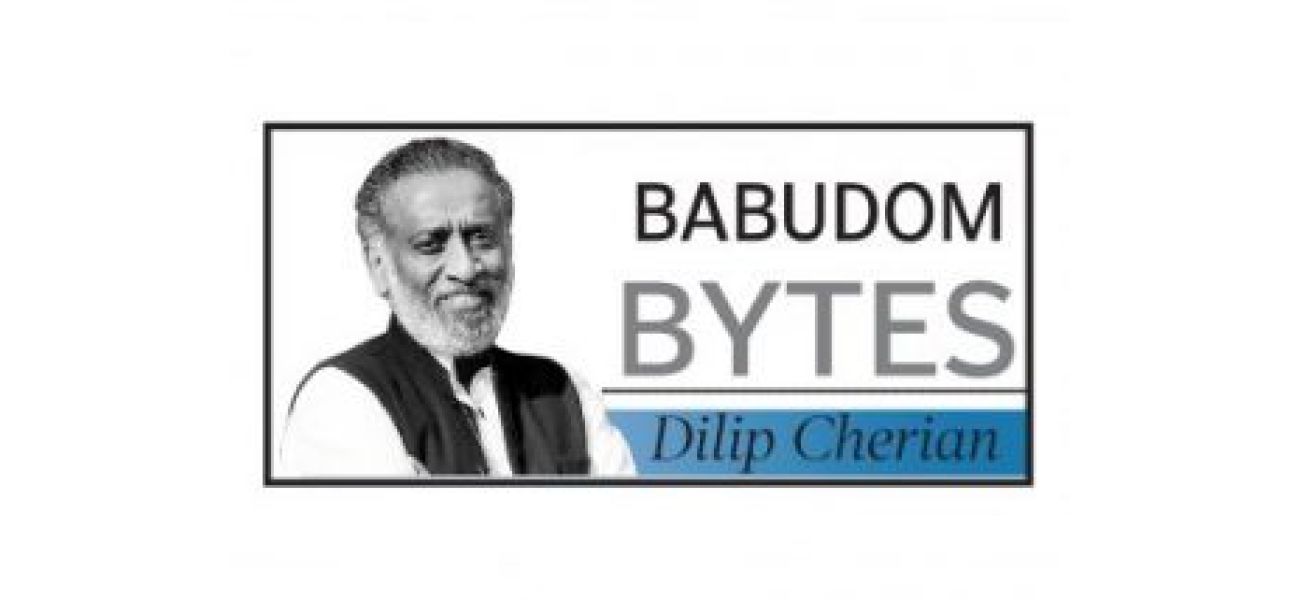Bureaucratic betrayal refers to the failure of a system or organization to uphold its responsibilities and obligations to those it serves, often resulting in harm or injustice.
New Kartavya Bhavan-3, a major part of Central Vista project, is causing dissatisfaction among intended occupants. CSS Forum wrote to PMO and MHUA about issues.
September 20th 2025.

In the heart of the grand Central Vista project lies the new Kartavya Bhavan-3, shimmering in all its glory. It is meant to be the jewel in the crown, but it seems to be stirring up discontent among the very officials who are supposed to occupy it. The Central Secretariat Service Forum, representing a whopping 13,000 officials, has taken up the matter with the Prime Minister's Office and the Ministry of Housing and Urban Affairs. They have alleged that the office space allocations in the new complex do not meet the government's own guidelines set in 2017. According to these guidelines, Deputy Secretaries and Directors are entitled to 240 sq ft, Under Secretaries to 120, Section Officers to 60, and Assistant Section Officers to 40. However, the reality is quite different. Officers are being crammed into large open halls with flimsy partitions, and even sensitive departments like the Home Ministry have been given undivided workspaces where private conversations and confidential files are exposed to prying ears.
The government's argument is that open-plan offices are a symbol of modernity, sustainability, and efficiency. They claim that it promotes less hierarchy, increased collaboration, and lower costs. However, governance is not a start-up. Officials argue that they are not discussing stock tips or brainstorming ideas while lounging on beanbags; they handle matters of vigilance, court cases, and classified files that require utmost discretion. Various global studies have shown that open offices may look sleek, but they often lead to decreased productivity, hinder concentration, and cause noise fatigue. Moreover, the risk of leaks is a major concern. As a result, not only are officers dissatisfied, but the entire governance system is at risk.
This is not about longing for the days of "cabin culture." It's about prioritizing function over form. If the government itself has set entitlements, why are they being ignored in their own flagship project? A building that is supposed to represent duty and efficiency is already being undermined by flawed design. The solution is not complicated – hybrid layouts, soundproofing, private areas for sensitive work, and genuine adherence to norms. Without these changes, Central Vista may be known less for its grandeur and more for its disregard for the people who run the state.
The Centre seems to be playing a game of yes, no, maybe with the service tenures of top officials. One moment, it's a resounding "no," and the next, it's a "go right ahead." For instance, the Centre rejected Jharkhand's request to extend the tenure of its acting DGP Anurag Gupta beyond April 30. Similarly, Uttar Pradesh's plea to retain DGP Prashant Kumar was turned down. Bihar's wish to keep Chief Secretary Amrit Lal Meena for longer was also denied, and the DoPT swiftly rejected UP's proposal to extend the tenure of Chief Secretary Manoj Kumar Singh.
But then, there was a sudden change in the government's stance. Madhya Pradesh was allowed to keep Anurag Jain as Chief Secretary for another year. Telangana was given permission to extend K Ramkrishna Rao's tenure by seven months. Maharashtra's Rajesh Kumar was granted a three-month extension, conveniently taking him through till November.
What caused this sudden change? The rejections were not limited to opposition-led states, and the approvals were not limited to BJP-ruled states, ruling out any simple explanations. Observers say that if this is a "policy," it is a remarkably obscure one. If it is based on a case-by-case basis, the Centre is not transparent about the criteria used to make these decisions. In a system that prides itself on following procedures and hierarchy, this seems more like mood swings than a method.
These flip-flops have real consequences for the officials involved. Senior officers like chief secretaries and DGPs are the backbone of the state machinery. When extensions are handled like a game of chance, it disrupts succession planning, leaves state governments in a lurch, and fuels speculation that Delhi is playing favorites, even if that may not be the case. At the very least, it sends out a message that rules can be bent depending on the circumstances.
The saga of Puja Khedkar is turning into a tragicomedy, from allegations of UPSC fraud to kidnapping accusations. Just when the story seemed to be fading, a new twist put it back on the front pages. Recently, a road rage incident in Navi Mumbai involving a cement-mixer truck resulted in the helper going missing. He was later found in a bungalow in Pune that was registered to "Puja Automobiles," a name linked to Khedkar. To make matters more complicated, her mother allegedly blocked the police from entering the residence. The police have registered a case for kidnapping, and the investigation is ongoing, with the abductors' identities still unknown.
Khedkar is no stranger to controversy. After her provisional selection was revoked by the UPSC on charges of misrepresentation of identity, falsely claiming OBC and disability quota benefits, and exceeding the maximum number of attempts allowed, she was dismissed from the IAS.
Even if we assume that there is no direct evidence linking Khedkar to the kidnapping, this entire episode highlights how easily one can go from being an aspirant for public service to being embroiled in a public scandal. The stakes are high when one takes on a role that requires trust. When allegations of fraud arise, every move is scrutinized, and public trust is further eroded. The police had to face resistance just to rescue the victim; such confrontations only add to the narrative that some in elite circles believe that rules are optional.
Khedkar's case has raised questions about the thoroughness of UPSC's identity verification process, disability claims, etc. When you add police action, property ownership, and political or social connections to the mix, it becomes more than just a scandal – it becomes a test of fairness and enforcement.
The government's argument is that open-plan offices are a symbol of modernity, sustainability, and efficiency. They claim that it promotes less hierarchy, increased collaboration, and lower costs. However, governance is not a start-up. Officials argue that they are not discussing stock tips or brainstorming ideas while lounging on beanbags; they handle matters of vigilance, court cases, and classified files that require utmost discretion. Various global studies have shown that open offices may look sleek, but they often lead to decreased productivity, hinder concentration, and cause noise fatigue. Moreover, the risk of leaks is a major concern. As a result, not only are officers dissatisfied, but the entire governance system is at risk.
This is not about longing for the days of "cabin culture." It's about prioritizing function over form. If the government itself has set entitlements, why are they being ignored in their own flagship project? A building that is supposed to represent duty and efficiency is already being undermined by flawed design. The solution is not complicated – hybrid layouts, soundproofing, private areas for sensitive work, and genuine adherence to norms. Without these changes, Central Vista may be known less for its grandeur and more for its disregard for the people who run the state.
The Centre seems to be playing a game of yes, no, maybe with the service tenures of top officials. One moment, it's a resounding "no," and the next, it's a "go right ahead." For instance, the Centre rejected Jharkhand's request to extend the tenure of its acting DGP Anurag Gupta beyond April 30. Similarly, Uttar Pradesh's plea to retain DGP Prashant Kumar was turned down. Bihar's wish to keep Chief Secretary Amrit Lal Meena for longer was also denied, and the DoPT swiftly rejected UP's proposal to extend the tenure of Chief Secretary Manoj Kumar Singh.
But then, there was a sudden change in the government's stance. Madhya Pradesh was allowed to keep Anurag Jain as Chief Secretary for another year. Telangana was given permission to extend K Ramkrishna Rao's tenure by seven months. Maharashtra's Rajesh Kumar was granted a three-month extension, conveniently taking him through till November.
What caused this sudden change? The rejections were not limited to opposition-led states, and the approvals were not limited to BJP-ruled states, ruling out any simple explanations. Observers say that if this is a "policy," it is a remarkably obscure one. If it is based on a case-by-case basis, the Centre is not transparent about the criteria used to make these decisions. In a system that prides itself on following procedures and hierarchy, this seems more like mood swings than a method.
These flip-flops have real consequences for the officials involved. Senior officers like chief secretaries and DGPs are the backbone of the state machinery. When extensions are handled like a game of chance, it disrupts succession planning, leaves state governments in a lurch, and fuels speculation that Delhi is playing favorites, even if that may not be the case. At the very least, it sends out a message that rules can be bent depending on the circumstances.
The saga of Puja Khedkar is turning into a tragicomedy, from allegations of UPSC fraud to kidnapping accusations. Just when the story seemed to be fading, a new twist put it back on the front pages. Recently, a road rage incident in Navi Mumbai involving a cement-mixer truck resulted in the helper going missing. He was later found in a bungalow in Pune that was registered to "Puja Automobiles," a name linked to Khedkar. To make matters more complicated, her mother allegedly blocked the police from entering the residence. The police have registered a case for kidnapping, and the investigation is ongoing, with the abductors' identities still unknown.
Khedkar is no stranger to controversy. After her provisional selection was revoked by the UPSC on charges of misrepresentation of identity, falsely claiming OBC and disability quota benefits, and exceeding the maximum number of attempts allowed, she was dismissed from the IAS.
Even if we assume that there is no direct evidence linking Khedkar to the kidnapping, this entire episode highlights how easily one can go from being an aspirant for public service to being embroiled in a public scandal. The stakes are high when one takes on a role that requires trust. When allegations of fraud arise, every move is scrutinized, and public trust is further eroded. The police had to face resistance just to rescue the victim; such confrontations only add to the narrative that some in elite circles believe that rules are optional.
Khedkar's case has raised questions about the thoroughness of UPSC's identity verification process, disability claims, etc. When you add police action, property ownership, and political or social connections to the mix, it becomes more than just a scandal – it becomes a test of fairness and enforcement.
[This article has been trending online recently and has been generated with AI. Your feed is customized.]
[Generative AI is experimental.]
0
0
Submit Comment





